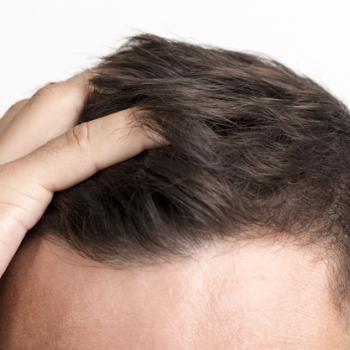Olive oil protects against Alzheimer’s
Not only is the Mediterranean diet tasty with a variety of health benefits, but now researchers have identified a specific ingredient that protects against cognitive decline: extra-virgin olive oil.
In a new study, the researchers show that consuming extra-virgin olive oil protects memory and learning ability and reduces the formation of proteins building up in the brain – a classic marker of Alzheimer's disease.
A more recent study (Jan 2022) published in the Journal of the American College of Cardiology (JACC) indicates even broader benefits; "Higher olive oil intake was associated with lower risk of total and cause-specific mortality. Replacing margarine, butter, mayonnaise, and dairy fat with olive oil was associated with lower risk of mortality". After, assessing diet by a semiquantitative food frequency questionnaire every 4 years, the study involving over 90,000 people found that higher olive oil intake was associated with:
- 19% lower risk of cardiovascular disease,
- 17% lower risk of cancer mortality
- 29% lower risk of neurodegenerative disease mortality, and
- 8% lower risk of respiratory disease mortality
How does olive oil help the brain?
Previous studies have shown that eating a diet rich in fruit, vegetables, legumes, grains and healthy fats, with a small amount of meat, results in a lower incidence of dementia.
But now scientists at the Lewis Katz School of Medicine at Temple University (LKSOM), in the US, have pinpointed extra-virgin olive oil as the key ingredient, by identifying the mechanisms behind the protective effects of this oil.
- Olive oil reduces brain inflammation
- Most importantly, it activates a process called autophagy, where cells break down and clear out intracellular debris and toxins. If this doesn’t happen it can mark the beginning of Alzheimer’s disease.
- Scientist believe extra-virgin olive oil is better than fruits and vegetables alone, and as a monounsaturated vegetable fat it is healthier than saturated animal fats.
In experiments mice given an extra virgin olive oil-enriched diet performed significantly better on tests.
Benefits include
- boosting working memory
- improving spatial memory
- enhancing learning abilities.
Now the scientists know that olive oil helps delay the onset of dementia, they want to do further research to see if it helps once the condition has already taken hold.
How much olive oil do you need to consume?
In order to get the health benefits, the general body of research says that 1-2 tablespoons of extra virgin olive oil a day will improve your blood pressure, protect your heart and brain, when you increase this to 3 or 4 tablespoons the oil also helps with weight loss.
How to find a good extra-virgin olive oil
Clinical nutritionist Stephanie Moore, practises in Mayfair at the Lanserhof Clinic, and knows the benefits of this nutritious oil. “Monounsaturated fats are well known as having many health benefits. Olive oil is probably the best known monounsaturated with extra virgin olive oil being the healthiest as it the least processed and cold-pressed.”
- Only buy extra virgin olive oil in dark glass bottles as it is very light sensitive
- Extra virgin olive oil is an ideal base for salad dressings
- Extra virgin olive oil is more expensive because this oil has been extracted from the olives without the use of heat or chemicals. It comes from the first pressings and is therefore of the highest quality. The lesser quality olive oils such as virgin or simply olive oil, come from later pressings where, in order to get every drop out of the fruit, heat and/or chemicals are used.
Fake olive oils
“I was horrified to learn that many extra virgin olive oils are ‘watered-down’ with cheap, nasty, unhealthy vegetable oils,” says Miss Moore.
“Not only are nasty oils being added, but sometimes artificial flavourings are added too in order to compensate for the loss of flavour due to it being degraded.”
How to check for good quality extra virgin olive oil
- Put your extra virgin olive oil in the fridge overnight. If it goes thick and opaque with whiteish crystals appearing on the glass, this is a good indicator that you’ve probably got a good one.
- If the oil has been contaminated, then it will remain free-flowing, non-cloudy and fully liquid.
- Check the label as it should be produced from one country, such as Greece, Spain, Italy, rather than a number of countries. It’s okay if it’s produced in one of these Mediterranean countries and then bottled in the UK. If possible, look for labels that say certified pure and organic.
Should you cook with extra virgin olive oil?
When it comes to which fats to cook with, different oils react to heat in various ways. This comes down to the smoking point of the oil. The healthier the oil, the lower the smoking point meaning it will start to smoke and therefore become damaged at a lower heat.
- Good quality extra virgin olive oil has a low – medium smoke point, so don’t use it for cooking.
- Use it for light sautéing
- To dress salads
- And to drizzle over foods once they’re cooked
Stephanie Moore is a clinical nutritionist and one of Vogue UK’s 'The Fresh Faces of Wellbeing'.











